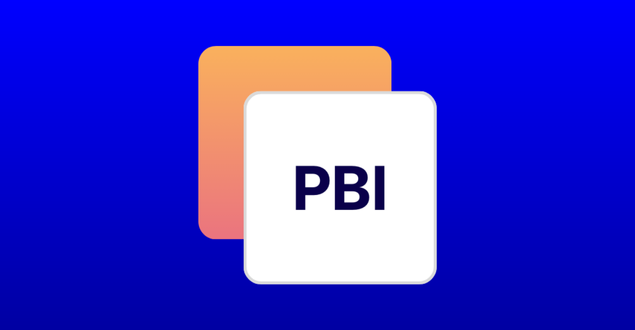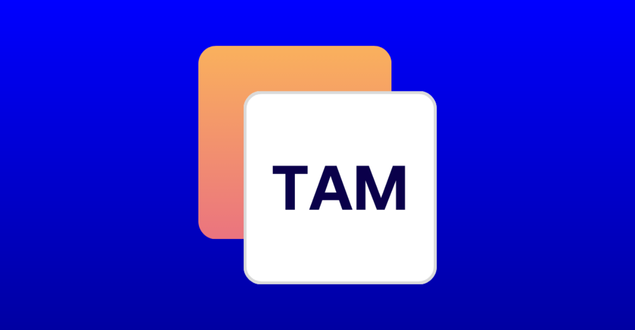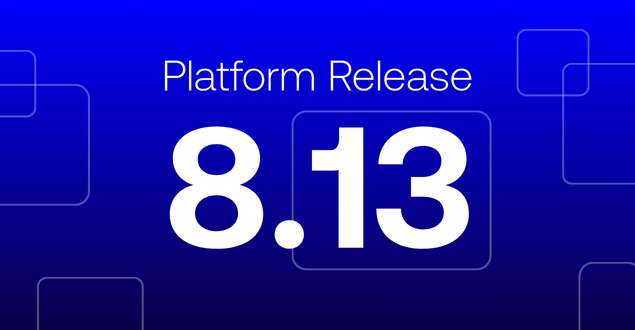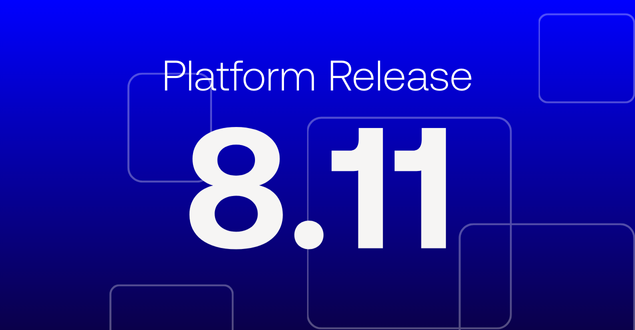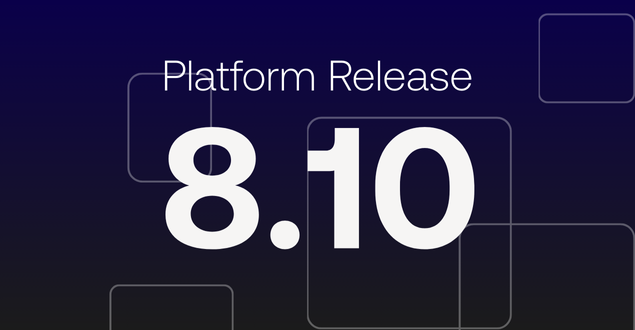Genesis platform release 8.12
Brings AI into Genesis Create, adds Solutions to the Marketplace and delivers new features to Trade Allocation Manager and Wealth Management Suite
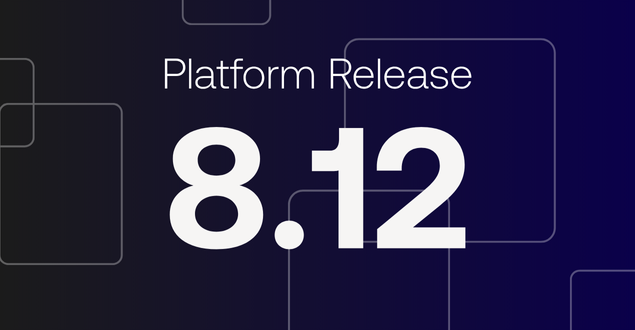
Table of Contents
Version 8.12 of the Genesis Application Platform deploys AI into Create to assist developers and empower domain experts to build applications more autonomously. This major advance enables users to define the core functions of an application through a dialog with a new AI agent. We also added new applications for options trading and treasury management to the Platform Marketplace and released several updates to our middle-office and wealth management solutions.
Let’s take a closer look at 8.12:
AI in Create makes domain experts more autonomous in building applications
A new AI agent in Create, our code-free application builder, enables users, including non-technical domain experts, to employ natural language prompts to define the core functions of their applications. This AI-driven process customizes Event Handlers without direct coding. The Event Handler, a core microservice of the platform, defines and runs business logic as events by modeling business actions and processes (e.g., adding, modifying or canceling trades).
Create generates events using the deterministic entity model as context. The AI agent then builds and validates the code required to deliver the business logic described in the prompts entered during the Event Handler configuration. Without AI, manual coding is required to customize Event Handlers in Genesis.
This video demonstrates how a domain expert uses Create to build a real-time position-keeping application and how the AI agent facilitates the custom Event Handler.
Using AI to assist developers and to make non-technical domain experts more autonomous in building applications is a pillar of Genesis’ AI strategy. The advantage with Genesis is that the platform’s component-driven architecture provides inherent guardrails for AI. As in this instance with Event Handlers, AI in Genesis configures an application by acting on the component’s defined and controlled extension points. The AI does not write or change the core component code. As a result, performance, compliance and other runtime attributes built into Genesis remain intact — even when users employ AI assistance.
Saved Filters give end-users more options to customize UI
The Genesis Grid component provides a customizable UI that helps users to quickly focus on the data that matters most. In this release, we’re introducing Saved Filters, a powerful feature that allows users to save their favorite filter configurations and effortlessly switch between them via a convenient dropdown menu. It’s a faster, smarter way to work with your data.
This short video shows a user filtering a trade list for Sell orders involving Vodafone and then creating a Saved Filter for that query. It also shows previously created Saved Filters, which display other types of transactions.
Solutions for FX Options and Treasury functions added to Platform Marketplace
FX Options (FXO) offers an advanced FX and derivatives trade blotter that integrates trade capture, analytics, market data and risk calculations from multiple third-party systems. The solution provides advanced pricing functionality and a full trade management system for complex products by harmonizing data from multiple systems to produce a golden record for trading and risk.
This short video shows how the solution integrates with Murex, presents exposures and graphs data.
The Treasury Money Market (TMM) Solution streamlines treasury operations through a central platform for publishing and managing money market rates across currencies. It automates the calculation of bid-ask spreads, generates prices for various settlement dates and provides a user-friendly interface to search rates by currency. The system also facilitates desks requesting rates for non-standard dates, addressing operational inefficiencies.
This video shows how the solution helps the firm set prices and manage money market lending in multiple currencies.
Solution updates: Trade Allocation Manager
The Genesis Trade Allocation Manager Solution (TAM) transforms middle and back-office operations with a multi-asset class solution that automates trade matching, allocations, fees, taxes, confirmations and other post-trade workflows. New features in TAM include:
- Commission unbundling & enhanced commission management: research, brokerage and sales book commissions can now be set up as independent commission groups. This includes support for front-office, user-level and client-level overrides, user overrides, client overrides and segregated posting downstream. These enhancements give operations and middle-office teams more granular control over how these fees are applied to trades.
- Custodian mapping for multi-back-office environments: TAM now supports custodian and other back-office service mapping directly within static data. This enhancement simplifies onboarding post-trade service providers and helps ensure that trades are routed to the correct providers.
- Flexible allocation file uploads: TAM’s Smart Allocation file matching capability, which intelligently reshapes client blocks to align with complex allocation sets, is now more flexible. With minimal effort, middle-office teams can now process a broader range of file formats, with support for varied field orders and headers. This reduces the need to adjust files manually and streamlines post-trade processing across diverse matching scenarios.
Solution updates: Wealth Management Suite
The Genesis Wealth Management Suite (WMS) is a multi-asset class client and internal quoting, trading and execution platform that optimizes the full trade lifecycle, from pre-trade engagement to post-trade settlement. WMS automates intra-bank workflow and data management and provides an array of tools for client quoting and portfolio proposals. New features include:
- Improved data dashboarding: new data displays provide views for:
- Activity: Trade statistics by instrument, group and account, trends, and biggest movers.
- Volume: Trade volume by instrument and group
- Historical data: Instrument pricing history with interactive charts and CSV export options
- Live client chat: real-time chat functionality in client portals improves communication between the financial institution and clients. A range of admin tools help firms configure, monitor and administer chat features.
- System analytics: improved activity dashboarding provides better data and visualization of solution usage metrics, including user logins, account activity and trading volume, real-time and historically.
Platform spotlight: Event Handler
The Event Handler is a core microservice of the Genesis Application Platform that defines and runs business logic as events.
Event Handlers are used to model user actions and business processes such as adding, modifying or canceling trades. They often interact with the underlying database and follow a two-stage approach: validation (to ensure an event can enact or otherwise issue warnings or rejections) and commit (to proceed with an event). They also interoperate seamlessly with the platform’s entitlements system, ensuring only authorized users or external systems can access the functionality or data.
Like every other platform microservice, the Event Handler supports high-volume, mission-critical scenarios and provides built-in metrics to track performance and latency.
Key Capabilities
- A Two-Phase Workflow: models events in two phases: a “validate” phase to check the event is valid, including generating warnings or requiring approvals, and a “commit” phase that enacts the event.
- Transactional Events: delivers fully ACID-compliant operations, rolling back changes if an event fails validation or is explicitly rejected.
- Fine-Grained Permissioning: integrates with the platform’s entitlements layer so that only authorized users or external systems can execute certain events.
- State Modeling: binds business object state transitions to event logic, ensuring objects advance only through valid workflows.
- REST Endpoint Generation: exposes each event as a secure, authenticated REST API, documented with OpenAPI for streamlined external integrations.
If you missed our 8.11 release, read all about it here.
Ready to experience the power of the Genesis Application Platform? Request a demo and free trial today.
